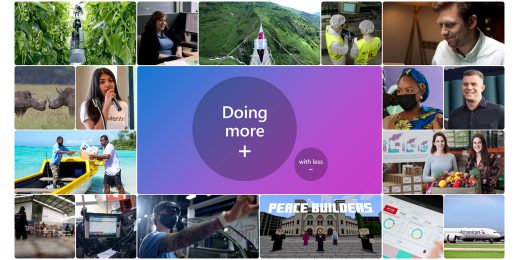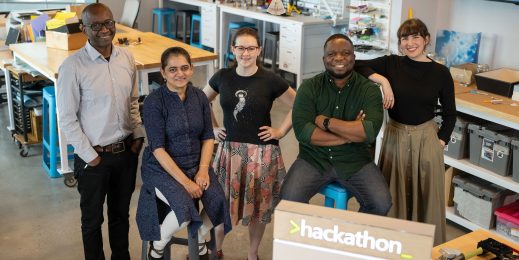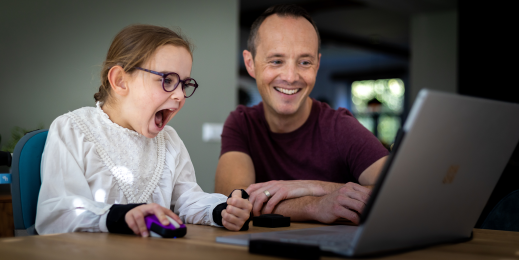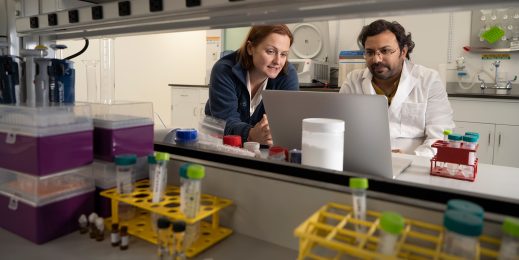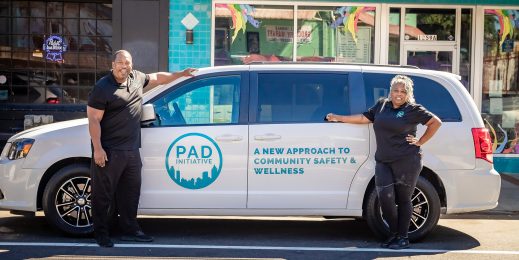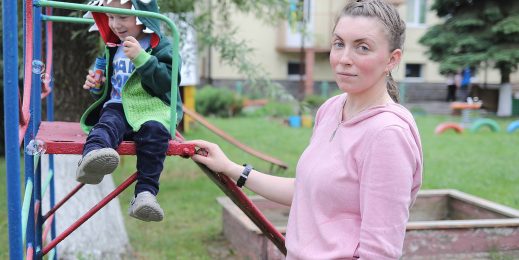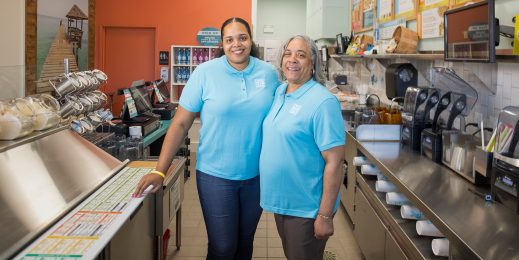
Coding Unbarred app at Hackathon helps inmates learn to code
It was a programming class filled with massive barriers. The students had no internet, personal computers or homework tools besides old-fashioned paper and pencils. Many came from low-income backgrounds with little exposure to computers, and as prison inmates, they were learning technology in a world largely walled off from technology.
But in a few short weeks, the students had built websites with HTML and CSS. They were studying JavaScript. They had programmed robots and learned about movement, sensors and electronics.
“It’s incredible how motivated and upbeat the students are, and how determined they are to make the most out of very little,” says Lindsey Wilson, co-founder of Unloop, a Seattle nonprofit that created the accredited programming class at the Washington Corrections Center for Women in Gig Harbor, Washington.
Unloop is now working with a Microsoft team of volunteers to build an app that teaches even more inmates how to code as part of a //oneweek Hackathon project happening this week. The 12-person team is one of thousands of Hackathon teams worldwide tackling everything from social issues to inclusive design during Microsoft’s annual employee innovation event.
Unloop wants to help inmates find promising careers after they leave prison as a way to decrease recidivism, in which inmates often cycle in and out of incarceration. A 2014 federal study found that two-thirds of people released from prison in 2005 were arrested for a new crime within three years of release.
The nonprofit views technology as a key solution to breaking that cycle. With the high demand for workplace tech skills and a relatively low entry barrier, coding can be a good career for people with non-traditional educations — and a way for people to stay out of prison, says Unloop.
“Programming itself is really built on: ‘If you can write good code, you can come work here,’” says Wilson. Unlike other industries, coding usually doesn’t require advanced degrees or entrance exams.
But the challenge is enormous. Most prisons in the country do not give inmates internet access, leaving many unskilled in basic technology when they finish their sentence. And many prisons are located in remote areas far from schools and organizations that could teach programming.
The team’s app, called Coding Unbarred, aims to overcome those challenges with a self-guided programming course and coding environment that works offline on prison tablets, and is suitable for inmates or anyone without internet. Team members are among many volunteers who support Unloop’s classes, workshops and mentorships to help a population that often struggles with higher rates of poverty, addiction and mental illness.
“Microsoft has a corporate mission to empower everyone, and when you talk about empowering everyone, that includes the most disadvantaged, marginalized and vulnerable people, and those are this population,” says Nancy Raiken, a Microsoft content developer in the Cloud and Enterprise group.
The Coding Unbarred app is part of Hack for Good, a Microsoft Philanthropies program that has connected many local nonprofits with Hackathon teams this year. The effort has helped nonprofits scope projects and pitch employees, while encouraging employees to volunteer their professional and tech skills and time to solve society’s toughest problems.
“People are really taking to heart that they can do something good with their skills,” says James Rooney, who has organized Hack for Good for Microsoft Philanthropies for Hackathons since 2014. “They’re answering the challenge and realizing they can have an impact on their community, neighborhood and Microsoft products in a way that has a positive social impact on the world.”

For Erin Peach, an intern in Microsoft’s data group, making the app is a way to give and grow her skills in education technology, while potentially helping thousands of people become productive members of society. In Washington, nearly 17,000 people are in prison, with thousands released each year.
“Even if we don’t turn out an army of web programmers by building this platform, it still gets people to see something they haven’t seen before, and I think that’s amazing,” says Peach, who is getting her master’s degree in computer science at the University of Washington.
Wilson figures the Hackathon team — composed of software engineers, content developers and interns from Azure, Office 365 and other groups — is giving 300 to 400 hours of skilled work, a major contribution to Unloop.
“If I can take my tech job and skills and make things better in any way, I want to do that,” Wilson says. “The community that comes together to volunteer is really amazing.”
Lead photo: The Coding Unbarred team includes (from left) Jake Martin, Nancy Raiken, Eunice Park, Amanda Chalfant, Ming Luo, Lindsey Wilson, Amy Shah, Celia Hunko, Bella Smith and Erin Peach. Not pictured: Olga Nikonova and Aravind Bharathy. (Photo by Scott Eklund/Red Box Pictures).






